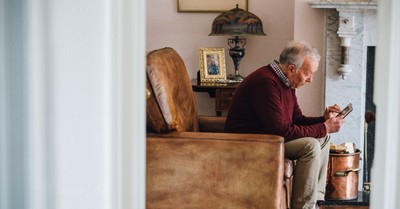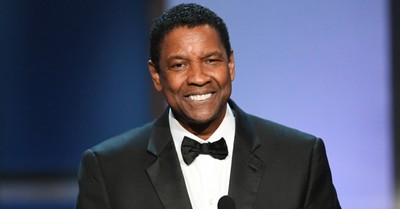Giving Your Spouse Respect
- Clayton and Charie King Authors
- Published Oct 31, 2011

She was my pleasing companion, my most affectionate friend, my judicious counselor. I seldom, if ever, repented of acting according to her advice. And I seldom, if ever, acted against it without being convinced by the event that I was wrong.
John Newton’s words about his wife, Polly.
Newton, a former slave ship captain, became a
Christian leader and wrote the hymn “Amazing Grace.” William Peterson, from 25 Surprising Marriages
Our first couple years of marriage, Clayton and I traveled together full-time. He often introduced me from stage, saying what a wonderful woman he had married, how lucky he was, how great I was, and so on. People probably wished they had someone to brag on them like that, but I always saw it as a way for Clayton to break the ice, a way to entertain the audience. He was communicating love to me in “his language“—and I was missing it.
We would return home and I’d wash the clothes, fold them, and pack his bag neatly. I was loving him in “my language,” but he just felt like I was doing what needed to be done to get on the road. We were showing love to one another, but in our own ways—and neither of us was seeing the other’s love.
A few years and a few children later, I finally started to notice how consistent Clayton’s pleas for verbal encouragement had become. But I reasoned it away. I saw him as a confident person, and besides, other people were always encouraging him. At each event, I watched as students, parents, and youth pastors showered him with compliments. After these, it seemed like mine would be inconsequential. When I would share this with Clayton, his response was always, “Yes, but you are my wife and I need your encouragement. I don’t need theirs. I need you, Charie.” He tried to explain how much he valued my admiration and approval, but I didn’t feel prestigious enough to make a difference.
It didn’t matter how many times he reassured me, I was unable to embrace the concept. I was intimidated by verbal affirmation because we didn’t really do this much in our home growing up, and because I think I was scared to sound foolish. My pride was trapping me. And finally, since I’m confessing, you should know I kind of resented the fact that he often received praise from everyone while I sat in the shadows. Yep. I think my pride was the main obstacle.
My stubbornness didn’t make sense, but I simply refused to humble myself. I avoided giving him what he needed. Instead I worked more around the house and even started to point out everything I was doing for him. I bet you can guess that my increased servitude and guilt-provoking comments didn’t change Clayton’s emotional makeup. He still needed the same thing—my verbal approval.
Loving someone can be tricky because our motives for love are sometimes unclear. Did I truly want to serve and love my husband, or was I really serving myself by looking for appreciation? It was probably a little of both, but if I wasn’t willing to love him in the way he needed, I was really only pleasing myself.
She had one abiding purpose: to show him she loved him, and she peeled away the layers of pride one by one until she was humbled by her own nakedness…She thought she had been saved by his love for her, and in part she had been. It cleansed her, never casting blame. But that had only been the beginning. It was loving him in return that brought her up out of the darkness. 1
—Francine Rivers, from Redeeming Love
Will You Make the Choice?
The passage above from the book Redeeming Love describes what took place in my heart toward my husband. I remember the day my heart truly embraced his need for respect.
I was reading the book For Women Only by Shaunti Feldhahn and ran across these words. “While it may be totally foreign to most of us, the male need for respect and affirmation—especially from his woman—is so hard wired and so critical that most men would rather feel unloved than disrespected or inadequate.” The survey indicated that if they had to choose one of the following two situations, 74 percent of men would rather be alone and unloved than feel inadequate and be disrespected. Only 26 percent chose the other way around. Shaunti comments,
Finally the lightbulb came on: If a man feels disrespected, he is going to feel unloved. And what that translates to is this: If you want to love your man in the way he needs to be loved, then you need to ensure that he feels your respect most of all. 2
The minute I read this, I saw just how blind I had been. I was letting other people love Clayton the way he needed to be loved while I watched, all because I was afraid to sound ignorant and insignificant. So I looked at my choices: Hide behind my pride and ignore my husband’s feelings, or believe him and hope to make a difference.
In her book Satisfy My Thirsty Soul, Linda Dillow shares,
One night when I couldn’t sleep, I looked up the word encourage. The root word is courage. The prefix en means “to put into,” so when I tell my husband how much I respect him for responding with love to someone who hurt him, I put courage into him. What a great thought! I also looked up the prefix dis. It means “to separate from.” So when I speak discouraging words to my husband I separate him from the courage he needs to be a godly man. Not such a great thought.
If encouragement does not easily flow from your lips, it might feel as if you’re speaking a foreign language when you begin to use words to build up others. But persevere, because words of encouragement give fresh energy to your children and also to your friends. 3
Linda’s words reminded me of myself. I needed to know that I could put courage into Clayton. It’s not that I was negative, nagging, or oppressive—I was simply withholding love by not giving respect. But if you think about it, if I wasn’t “putting in” to him, I was actually separating him from something he needed. Something he had asked for, not once, but many times. I tried to reason that he didn’t need it, but he wouldn’t give up—thankfully.
My Choice… and What Followed
The Roman emperor Marcus Aurelius is reported to have said, “Because a thing seems difficult for you, do not think it impossible.” Taking Marcus Aurelius’ and Linda Dillow’s advice, I decided to take the plunge. I would nurture and cultivate Clayton’s confidence. I would express my undying devotion to and delight in him. I would tell him how wonderful I thought he was and how much I loved him. I’d been hesitant too long. Now I would take action and respect his need to hear my words of affirmation.
I wish I could tell you God miraculously intervened and poetic words of eloquence and power fell from my lips. It was quite the opposite. After an event, we were finally alone in the car. Pumped up on adrenaline, I nervously I blurted out, “You did a great job. I really thought the scriptures and illustrations were neat. That was really great and I felt like everyone thought you were neat.” (I won’t be offended if you laugh at me right now.)
Silence followed, and I thought, Where’s a thesaurus when you need it? “Great” and “neat”? Nervous sweat began to drip down my back, and my face turned red. My hands were clasped and felt clammy. I couldn’t look Clayton in the eye because I was so embarrassed. I looked down to the floor mats. Why was this so hard for me? Then he turned to offer me a grin. I think my blunder had surprised us both and we relieved the tension with laughter. He took my hand, looked into my hesitant eyes, and thanked me. We held hands for a long time. If Clayton’s dry soul could have spoken, it would have gushed a delightful “ahhh.” In this moment I was convinced that humbling yourself for someone you adore strengthens you both. It truly is better to give than receive.
I continued to feel ridiculous each time I affirmed Clayton, but each effort became easier because he knew I was trying. He heard my heart and not just my words, and he’d try to help me. If I was complimenting him and stopped, he would ask more questions in a show of mock arrogance. Like, when I’d say he was the best husband ever, he’d say, “How do you know? ’Cause you can’t even pay attention to anyone else when you’ve got such a magnificent specimen of a husband right here in front of you.” I’d laugh and continue, disarmed. He was grasping more and more just how much I respected and loved him.
I had always felt it, but didn’t know how much hearing it encouraged him, and how much not hearing it caused him to question my feelings. Sophistication is overrated. When we take ourselves too seriously, we miss the opportunity to grow and to help and encourage each other. Giving respect benefits the relationship, not just the individual.
And guys, remember this: “Most women really do feel great respect and appreciation for their husband or boyfriend but don’t always know how to show it. In fact ninety-three percent of women may not always show it well, but actually deeply need, respect and desire their husband or significant other.” 4
Why Do We Give Respect?
…Because We Are His Creation
So many times we miss opportunities to honor each other. Maybe we’re missing this call because we’re forgetting where we’ve come from. Why should we respect one another? Because of who we are in Christ! We are children of God—redeemed by Him. Each one of us carries worth because we are loved by our Savior. Why did God value our lives enough to save us? Because we are His creation, made in His likeness. We respect each other first because of where we’ve come from. We came from God.
I’m an oil painter, and hope soon to experiment with acrylics also. My works are an expression of me. Often what I paint is an outward expression of what the Lord is doing in my heart. If I were to share a painting with someone and they took out a knife and began slashing the canvas, I would be heartbroken and angry! In the same way, people are a display of God’s work of creativity: “We are God’s masterpiece. He has created us anew in Christ Jesus so we can do good things he planned for us long ago.” 5
We treat one another with honor because He created our inmost being; He knit us together in our mother’s womb. We praise Him because we are fearfully and wonderfully made; His works are wonderful, we know that full well. 6 Why are we called to respect each other? Because each of us is fearfully and wonderfully made! Your mate is God’s creation, whether man or woman, he or she needs to feel important and valued. God placed tremendous value on your mate and planned good things for them long ago. 7 He has a plan and purpose for them, and when you affirm them, they are better equipped to fulfill that purpose. You are worshiping Him by honoring the person He created. You get to share life with a creation of God. Do you know that “full well”?
Honor isn’t passive, it’s active…Honor not expressed is not honor. 8 —Gary and Betsy Ricucci, from Love That Lasts
Article excerpted from 12 Questions to Ask Before You Marry (Harvest House Publishers, Eugene, Oregon). Copyright 2011 by Clayton and Charie King. Used with permission. All rights reserved.
Clayton and Charie King have been married since 1999 and share a passion to serve Christ through ministry, missions, and marriage. Clayton is a pastor, evangelist, and missionary, the author of Amazing Encounters with God and Dying to Live, and the founder and president of Crossroads Worldwide. Charie is an artist, an author, and a popular speaker at youth and women's conferences. The couple has two sons.



















